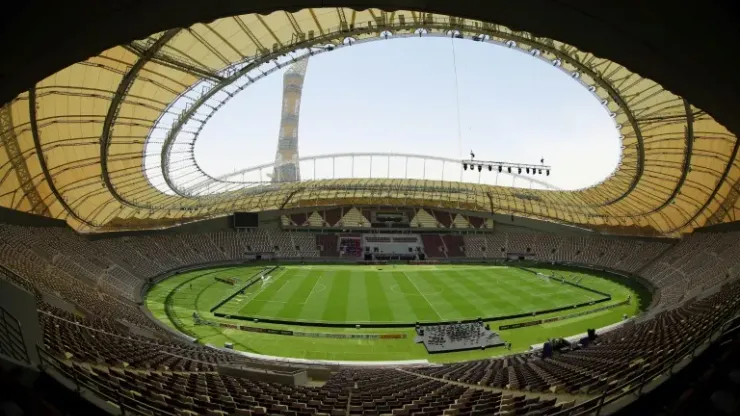Doha (Qatar) (AFP) – Qatar World Cup organisers on Saturday told FIFA it was “important” to hold talks before any final decision was taken to expand the 2022 tournament to 48 teams.
In the first response by the Gulf nation since the shock news that FIFA is looking at bringing forward its plan to increase the number of World Cup teams by four years, Qatar also said it was confident it could still deliver a “successful” tournament.
“Before any decision is taken it is important that discussions are held on the operations and logistics of an increase in size of the tournament in Qatar,” said a spokesperson for Qatar’s Supreme Committee for Delivery & Legacy in a statement.
“Regardless of the outcome – we are confident in our ability to deliver a successful World Cup in 2022.”
Qatar was responding to a request by the South American Football Confederation (CONMEBOL), which on April 12 at its congress formally asked FIFA to introduce the plan to expand team numbers in time for Qatar.
Football’s governing body had already agreed to enlarge the tournament from the current 32 teams — which is how many are currently scheduled to play in Qatar — for the 2026 tournament.
CONMEBOL president Alejandro Dominguez made the request in a letter handed to Gianni Infantino.
The FIFA president has called the proposal a “very interesting idea”.
It could however present problems for Qatar.
The tournament has already been shortened to 28 days to accommodate the switch to playing the tournament in November and December.
By contrast, the World Cup in Russia this year will be played over 32 days.
Qatar, which is spending $500 million a week on the first World Cup staged in the Middle East, is currently only planning to use eight venues in 2022.
Again, by contrast, Russia will use 12.
FIFA is yet to make a final decision on the number of stadiums to use in 2022.
One solution may be for Qatar, which has called its World Cup one for the Middle East region, to sanction holding some matches elsewhere in the Gulf.
However, that is complicated by the fact Qatar is at the centre of fractious ongoing regional political dispute.
For the past 10 months, the World Cup host has been isolated by a group of former allied neighbouring countries led by Saudi Arabia which accuse Doha of supporting terrorism.
Qatar rejects the charges and claims it neighbours want regime change.
200+ Channels With Sports & News
- Starting price: $33/mo. for fubo Latino Package
- Watch Premier League, Women’s World Cup, Euro 2024 & Gold Cup
The New Home of MLS
- Price: $14.99/mo. for MLS Season Pass
- Watch every MLS game including playoffs & Leagues Cup
Many Sports & ESPN Originals
- Price: $10.99/mo. (or get ESPN+, Hulu & Disney+ for $14.99/mo.)
- Features Bundesliga, LaLiga, Championship, & FA Cup
2,000+ soccer games per year
- Price: $5.99/mo
- Features Champions League, Serie A, Europa League & Brasileirāo
175 Premier League Games & PL TV
- Starting price: $5.99/mo. for Peacock Premium
- Watch 175 exclusive EPL games per season






